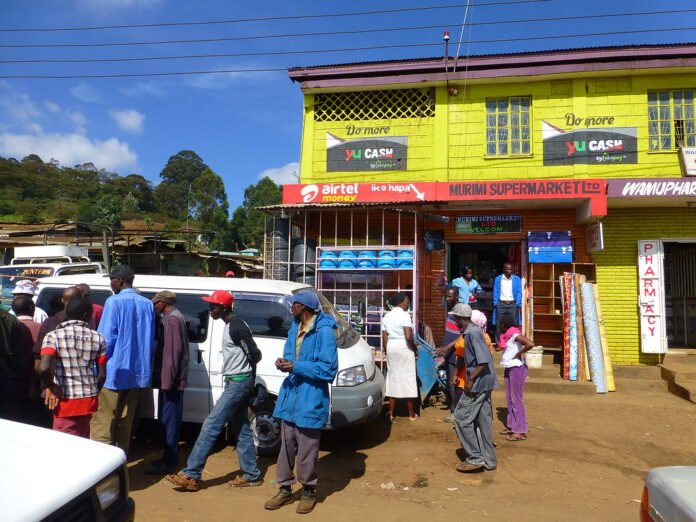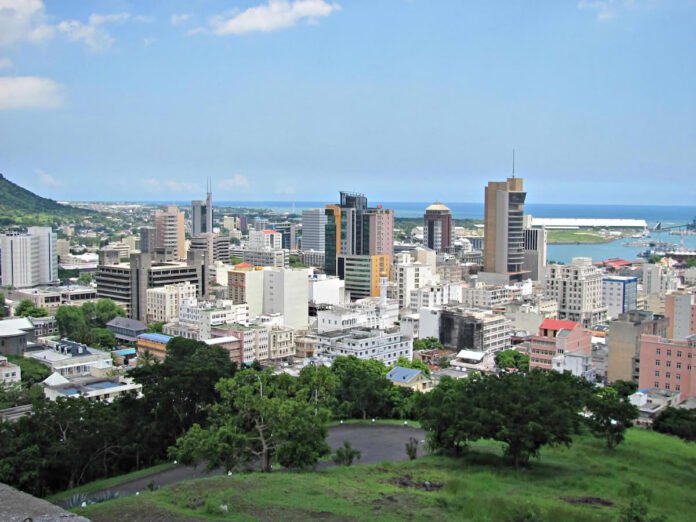Kenya’s healthcare system is characterized by a dual structure of public and private health insurance providers, each playing a vital role in ensuring citizens and residents have access to medical care. While both systems aim to improve health outcomes, they differ significantly in terms of cost, accessibility, services, and user experience.
Key Differences
1. Cost and Premiums
Public health insurance in Kenya is primarily offered through the National Health Insurance Fund (NHIF), which has relatively low and standardized premiums. For example, salaried employees contribute a fixed rate based on their income, while informal workers and self-employed individuals pay a flat monthly rate. On the other hand, private health insurance—offered by companies like Jubilee Insurance, AAR Insurance, UAP Old Mutual, Britam, and APA Insurance—tends to have higher premiums that vary based on the level of coverage, age, pre-existing conditions, and additional services selected.
2. Scope of Coverage
NHIF provides a broad but basic range of healthcare services including outpatient care, inpatient treatment, maternity services, dialysis, and some chronic disease management. However, it often lacks depth in specialist services and coverage for high-cost treatments like advanced surgeries or international care.
Private insurers, in contrast, offer more comprehensive and customized packages, including dental, optical, maternity, chronic illness cover, overseas referrals, and wellness benefits. These packages can be tailored to specific client needs, but typically come at a higher cost.
3. Service Delivery and Facilities Access
Public health insurance via NHIF typically covers care in public hospitals and select accredited private facilities. These facilities are sometimes plagued with long wait times, limited infrastructure, and understaffing.
Private insurance clients usually have access to premium private hospitals, which offer faster service, modern medical equipment, personalized attention, and a wider range of specialists.
4. Administrative Efficiency and Claims Processing
NHIF has faced criticism for bureaucratic delays, inefficiencies in claims processing, and inconsistent service delivery. In contrast, private insurers often provide dedicated customer service lines, mobile apps, and faster reimbursement or preauthorization processes, enhancing the overall customer experience.
Key Similarities
1. Aim to Improve Healthcare Access
Both NHIF and private insurers share the core goal of improving access to healthcare and financial protection against health-related expenses. They strive to reduce out-of-pocket costs for patients and prevent impoverishment due to medical emergencies.
2. Regulation and Accreditation
All health insurers in Kenya—public and private—are regulated by the Insurance Regulatory Authority (IRA) and must comply with standards set by the Ministry of Health. Both sectors work under national health policies and contribute to universal health coverage goals.
3. Use of Technology
In recent years, both sectors have embraced digital innovations, such as online registration, mobile payments (e.g., M-Pesa), and telemedicine services to improve accessibility and convenience for users.
Top Public Health Insurances in Kenya: Cost, Coverage, Access, and Consumer Satisfaction
Kenya’s public health insurance landscape is primarily dominated by the National Health Insurance Fund (NHIF), which serves as the cornerstone of public healthcare financing for the country. Although there are a few other smaller schemes associated with specific government sectors or social groups, NHIF remains the main public insurer accessible to the general population. Below is a detailed overview of the top public health insurance providers in Kenya.
1. National Health Insurance Fund (NHIF)(Official Website: https://sha.go.ke/)
- Cost:
NHIF contributions are income-based for salaried employees, ranging from KES 150 (approx. USD 1.30) for the lowest wage earners up to KES 1,700 (approx. USD 15) monthly for high earners. Informal sector workers pay a flat rate, usually between KES 500 and 1,700 monthly, depending on the chosen contribution tier. - Available Services/Coverage Features:
NHIF covers inpatient services, outpatient services (in select facilities), maternity care, dialysis, cancer treatment, mental health services, orthopedic surgery, and chronic disease management. It also supports preventive health programs and has recently expanded to cover some outpatient services through accredited providers. - Open for All or Limited:
NHIF is open to all Kenyan citizens and legal residents, including salaried employees, informal sector workers, and the self-employed. Membership is mandatory for formal employees and voluntary for others. - Core Financial Features:
NHIF operates as a social health insurance scheme pooling funds from mandatory contributions, enabling risk-sharing across the population. Members receive cashless services at accredited hospitals. However, some out-of-pocket payments may still occur due to medicine shortages or uncovered services. - Consumer Satisfaction Score:
Consumer satisfaction varies; many appreciate the financial protection NHIF offers, especially for inpatient care. Challenges include delays in claim reimbursements, limited outpatient coverage, and sometimes inadequate customer service. According to a 2022 survey, NHIF scores around 60-65% on consumer satisfaction, reflecting room for improvement.
2. Civil Servants Scheme (CSS)
- Cost:
Funded by government allocations and payroll deductions from civil servants. Costs are generally covered as part of the employment benefits package. - Available Services/Coverage Features:
Provides comprehensive healthcare benefits tailored to civil servants and their dependents, including inpatient, outpatient, dental, and maternity services. Coverage is similar to NHIF but often supplemented by government budget allocations. - Open for All or Limited:
Limited to government employees and their eligible dependents. - Core Financial Features:
Funded through a combination of employer (government) contributions and employee payroll deductions. Provides a stable financial base and negotiated services with government and private healthcare providers. - Consumer Satisfaction Score:
Generally favorable among civil servants, scoring above 70%, given the stable funding and relatively better service access compared to general NHIF members.
3. Armed Forces Medical Scheme
- Cost:
Financed by the Ministry of Defense and contributions from personnel salaries. - Available Services/Coverage Features:
Offers comprehensive medical coverage including hospitalization, outpatient, dental, maternity, and emergency care specifically for military personnel and their families. - Open for All or Limited:
Exclusive to Kenya Defense Forces members and their dependents. - Core Financial Features:
Funded by government allocations and personnel contributions, with direct agreements with military and civilian hospitals. - Consumer Satisfaction Score:
High satisfaction reported within the military community, above 75%, attributed to dedicated facilities and priority access.
4. Teachers Service Commission (TSC) Health Scheme
- Cost:
Financed through payroll deductions from teachers’ salaries and government funding. - Available Services/Coverage Features:
Covers medical care for teachers including outpatient, inpatient, maternity, and preventive health services. - Open for All or Limited:
Limited to registered teachers employed by the government. - Core Financial Features:
Combination of employer contributions and employee deductions ensures stable funding. - Consumer Satisfaction Score:
Moderate satisfaction (~65%) with some reports of delayed claim reimbursements.
5. Kenya Police Medical Scheme
- Cost:
Funded through government allocations and payroll deductions. - Available Services/Coverage Features:
Provides health services for police officers and their dependents, including hospital care, outpatient treatment, and emergency services. - Open for All or Limited:
Restricted to police personnel. - Core Financial Features:
Funded through combined contributions and government support. - Consumer Satisfaction Score:
Relatively high satisfaction (~70%), reflecting access to specialized facilities and priority care.
Top 5 Private Health Insurances in Kenya: Cost, Coverage, Access, and Consumer Satisfaction
Kenya’s private health insurance market is well-developed and serves a broad segment of the population, including individuals, expatriates, and corporate clients. Private insurers offer a variety of plans ranging from basic coverage to comprehensive international health insurance, often providing quicker access to quality healthcare facilities than public schemes. Below is an overview of the top five private health insurance providers in Kenya.
1. AAR Insurance(Official Website: https://aar-insurance.com/)
- Cost:
Premiums vary widely depending on coverage level, age, and health status. Basic individual plans start at approximately KES 5,000 (~USD 45) per month, while comprehensive family plans can exceed KES 20,000 (~USD 180) monthly. - Available Services/Coverage Features:
AAR offers inpatient and outpatient services, maternity care, dental, optical, chronic disease management, emergency evacuation, and wellness programs. They provide cashless services across a wide network of accredited hospitals and clinics. - Open for All or Limited:
Open to individuals, families, and corporate groups across Kenya. - Core Financial Features:
Risk pooling with flexible plan options; includes annual limits and co-payments depending on the plan. Members enjoy cashless access to services at network providers. - Consumer Satisfaction Score:
High consumer satisfaction around 75-80%, praised for wide hospital networks and responsive customer service.
2. Jubilee Insurance(Official Website: https://jubileeinsurance.com/ke/)
- Cost:
Individual plans start at about KES 4,000 (~USD 35) monthly; corporate plans priced based on group size and coverage extent. - Available Services/Coverage Features:
Covers inpatient and outpatient care, maternity, surgical procedures, chronic illnesses, dental, optical, and medical evacuation. Jubilee has a vast network of accredited hospitals. - Open for All or Limited:
Open to individuals, groups, and corporate clients. - Core Financial Features:
Offers co-pay and deductible options with different coverage tiers to balance cost and benefits. Provides cashless claims and direct billing at partner facilities. - Consumer Satisfaction Score:
Generally positive feedback with scores near 70-75%, valued for claims processing speed and extensive coverage options.
3. Britam Insurance(Official Website: https://ke.britam.com/)
- Cost:
Premiums vary from KES 6,000 (~USD 55) per month for basic plans to over KES 25,000 (~USD 230) for premium family plans. - Available Services/Coverage Features:
Includes comprehensive inpatient and outpatient care, maternity, emergency evacuation, dental, optical, and wellness benefits. Offers personalized plan options and international coverage for expatriates. - Open for All or Limited:
Open to individuals, families, and corporate groups. - Core Financial Features:
Flexible plan designs with deductibles and co-pays, cashless service options, and online claims submission. - Consumer Satisfaction Score:
Rated around 70%, with clients appreciating the tailored coverage and professional customer service.
4. Resolution Insurance(Official Website: https://www.gainsuranceltd.com/ke/)
- Cost:
Starts around KES 5,500 (~USD 50) monthly for individual plans, with corporate rates varying by group size. - Available Services/Coverage Features:
Covers inpatient, outpatient, maternity, chronic disease management, dental, optical, and emergency evacuation services. - Open for All or Limited:
Available to individuals and corporate groups across Kenya. - Core Financial Features:
Offers cashless access at accredited providers, flexible premiums, and options for co-payment to lower premiums. - Consumer Satisfaction Score:
Moderate to high satisfaction, approximately 68-72%, with emphasis on reliable service and claim support.
5. GA Insurance(Official Website: https://www.resolution.co.ke/)
- Cost:
Individual plan premiums start at about KES 4,500 (~USD 40) monthly, with corporate plan pricing customized. - Available Services/Coverage Features:
Provides inpatient and outpatient coverage, maternity, dental, optical, medical evacuation, and wellness programs. - Open for All or Limited:
Open to individuals, families, and corporate clients. - Core Financial Features:
Offers co-pay options, annual limits, cashless claims, and direct hospital billing. - Consumer Satisfaction Score:
Satisfaction rated at around 65-70%, with customers citing good network hospitals and responsive claims processing.
READ MORE: Private and public health insurance of Monaco (Make informed choices)


